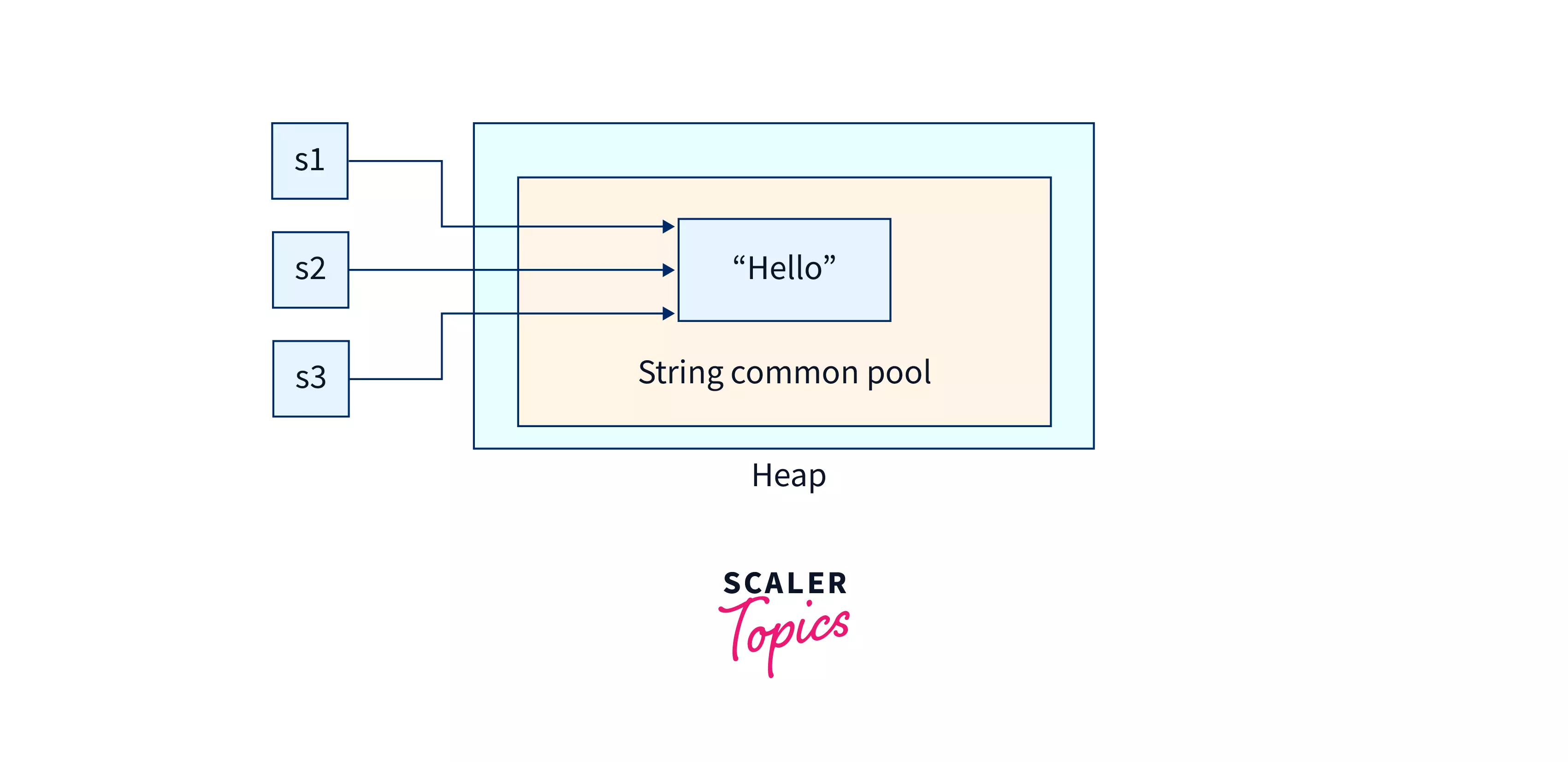Why Are Strings Immutable in Java? Security and Performance Advantages
Why Are Strings Immutable in Java? Security and Performance Advantages
Blog Article
Exploring the Advantages of Unalterable Strings in Modern Shows Paradigms
In the world of modern-day shows paradigms, the concept of unalterable strings stands as a cornerstone of durable software advancement. By embracing unalterable strings, developers can make sure improved data stability, improved string safety, simplified debugging processes, raised safety and security measures, and reliable performance optimization.
Enhanced Data Integrity

By protecting against the alteration of string objects, immutability eliminates the danger of unintended adjustments to the information they hold. This not only enhances the protection of the information but likewise improves the reliability of the code that relies upon these strings.
Immutability additionally sustains much safer multithreading environments, as simultaneous access to unalterable strings does not pose the danger of information corruption via synchronised alterations. This home streamlines the procedure of taking care of strings in parallel programming scenarios.
Fundamentally, immutability serves as a safety shield around the information kept within strings, boosting their honesty by making sure that once defined, their values remain the same throughout the program's execution.

Improved Thread Safety
Immutable strings enhance the string safety of programs by guaranteeing that once a string item is developed, its value can not be changed. This residential or commercial property eliminates the danger of concurrent threads trying to change the same string simultaneously, which can cause data corruption or inconsistent states in the program - Why are strings immutable in Java?. In a multi-threaded atmosphere, where multiple strings access and control information all at once, the immutability of strings supplies a level of safety and security by ensuring that the information stays unmodified throughout its lifecycle
Simplified Debugging Procedures
Offered the improved string security helped with by immutable strings, a substantial benefit develops in the realm of simplified debugging procedures. Immutable strings, once created, can not be modified, making it simpler to trace the flow of information and identify the source of bugs in a program. This immutability makes certain that strings remain regular throughout the implementation of the program, lowering the probability of unforeseen modifications that might bring about errors.
When debugging with mutable strings, designers often come across issues where a string's worth is customized unintentionally, making it testing to determine the origin of a pest. However, with unalterable strings, the data stays unchanged, allowing developers to focus on examining the real logic of the code rather than tracking down where and when a string was customized improperly.
Additionally, immutable strings simplify the debugging process by enabling simpler recreation of insects. Since unalterable strings do not change state, developers can recreate and research pests more efficiently, leading to quicker recognition and resolution of issues within the codebase. This structured debugging workflow eventually adds to greater software top quality and boosted general advancement effectiveness.

Increased Safety And Security Procedures
Enhancing data protection and fortifying system stability, the usage of immutable strings in software program applications contributes dramatically to increased security actions. Unalterable strings, as soon as developed, can not be customized, offering an important protection versus harmful tampering or unauthorized gain access to. By ensuring that delicate data saved in strings continues to be unchanged throughout the program's implementation, the danger of information breaches or injection assaults is significantly lowered. Why are strings immutable in Java?. Unalterable strings also play a crucial duty in avoiding usual safety and security susceptabilities such as buffer overflows and SQL injection strikes, as efforts to control string data at runtime Recommended Reading are naturally limited.
In addition, the immutability of strings improves the predictability of program habits, making it simpler to validate inputs and prevent unexpected changes that could jeopardize safety. This predictability streamlines the process of auditing and validating code, enabling developers additional hints to determine possible security loopholes better. On the whole, integrating immutable strings into software advancement techniques not just enhances the robustness and integrity of applications but likewise enhances their resilience against protection threats.
Effective Efficiency Optimization
Building upon the structure of raised safety measures accomplished via the usage of immutable strings, a vital element to consider in software application development is reliable performance optimization. When taking care of mutable strings, operations like concatenation or substring development typically cause the production of brand-new string items, leading to memory overhead and raised handling time. Nevertheless, with immutable strings, these procedures can be maximized to boost performance. By enabling strings to remain continuous and stable, immutable strings promote much better memory monitoring and caching chances, ultimately increasing the total efficiency of the software program.
Given that unalterable strings can not be changed when developed, they can be shared across strings without the danger of unforeseen adjustments, lowering the requirement for synchronization systems and improving concurrency. Unalterable strings simplify debugging processes as developers can trust that a string's value will go to my blog stay regular throughout the program's implementation, getting rid of potential mistakes created by mutable state adjustments.
Verdict
Finally, the advantages of utilizing immutable strings in modern programs standards can not be overstated. Enhanced data integrity, enhanced thread safety and security, simplified debugging processes, increased safety measures, and efficient performance optimization all add to the overall effectiveness of shows tasks. By integrating immutable strings into shows techniques, programmers can gain from a more dependable and durable codebase.
Immutability, a crucial attribute of strings in programs languages such as Java and Python, ensures that when a string things is created, it can not be altered or customized.Unalterable strings boost the thread safety of programs by ensuring that when a string object is created, its worth can not be modified. Unalterable strings additionally play an essential role in protecting against common security vulnerabilities such as buffer overflows and SQL shot assaults, as efforts to control string data at runtime are naturally limited.
By permitting strings to remain unchangeable and consistent, immutable strings facilitate much better memory monitoring and caching possibilities, inevitably boosting the total performance of the software program.
Immutable strings simplify debugging processes as programmers can trust that a string's worth will certainly stay regular throughout the program's implementation, getting rid of prospective errors caused by mutable state adjustments.
Report this page